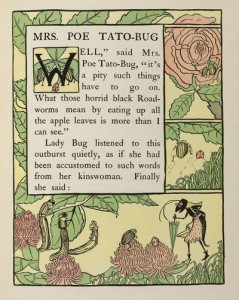“The parents of an 8-year-old boy who died after his grandfather fired a cannon that exploded at an outdoor Fourth of July celebration in 2007 have filed a wrongful-death lawsuit against Thurston County.” [The Olympian; KOMO; earlier]
Archive for 2009
CPSIA on the radio: Hugh Hewitt show today
 I’m scheduled to be a guest on Hugh Hewitt’s very high-rated radio show today (6:20 p.m. EDT). He’s taken the leading role among talk hosts in publicizing the disasters brought on by the law, so it should be interesting.
I’m scheduled to be a guest on Hugh Hewitt’s very high-rated radio show today (6:20 p.m. EDT). He’s taken the leading role among talk hosts in publicizing the disasters brought on by the law, so it should be interesting.
CPSIA on the radio: “Kresta in the Afternoon”

I was a guest this hour on the popular Michigan-based radio show “Kresta in the Afternoon” with substitute host Nick (whose wife is a crafter of kids’ items and has been bugging him to cover the law for months…). We discussed the general problems with the law, motorbikes, thrift stores, kids’ garments, libraries and books.
Having finished a draft yesterday on my big unrelated writing project, I’m a little freer now to do radio, and I suspect there may be more of it coming given the interest stirred by the AP’s new piece on libraries.
More baseball liability woes
A state Supreme Court ruling that allows a Bettendorf woman to sue over injuries her daughter suffered when she was struck with an errant bat at a minor-league baseball game threatens the spirit of America’s pastime, according to a judge who said his fellow justices have “taken a mighty swing … and missed by a mile.”
Cynthia Sweeney had signed a liability waiver, but sued anyway after her daughter, sitting in the bleachers as part of a school field trip, was struck by a bat that went flying. For more baseball-liability reports, follow our baseball tag.
Didn’t know it was unsafe to dance on bar, cont’d
This time a New York city judge has dismissed the claim of Irish tourist Valerie Morris, who slipped while dancing on a bar and sued the bar owners. We’ve covered previous dancing-on-bar suits from Illinois here and here.
CPSC: No, we didn’t ask libraries to pull pre-1985 books
It’s been a day of dramatic developments on the CPSIA-and-libraries front. An Associated Press article out yesterday quoted Scott Wolfson, a spokesman for the Consumer Product Safety Commission (CPSC) as officially urging the nation’s libraries to remove from their shelves children’s books printed before 1986 until more is known about their possible dangers from lead in their inks, dyes and pigments:
Until the testing is done, the nation’s more than 116,000 public and school libraries “should take steps to ensure that the children aren’t accessing those books,” Wolfson said. “Steps can be taken to put them in an area on hold until the Consumer Product Safety Commission can give further guidance.”
Within the day, however, commission chief of staff Joe Martyak said that Wolfson had “misspoke”, and that the commission has neither concluded that the books might be dangerous nor recommended that libraries take any action. An early version of the AP story is here, with the Wolfson quote, and a later version here, for purposes of comparison.

It’s not as if Wolfson was making things up here. As readers will recall, one of the two CPSC commissioners, Thomas Moore, called weeks ago for some undefinedly large share of old books to be “sequestered” from children for the time being. However, the full commission has left the issue up in the air rather than endorsing Moore’s view.
The AP also turns to Jay Dempsey, a health communications specialist at the Center for Disease Control, a federal agency that I suspect knows a great deal more than does the CPSC about the public health problem of children’s lead poisoning. Dempsey does not rate highly the danger that a child will ingest lead from books: “on a scale of one to 10, this is like a 0.5 level of concern.”
I’m also puzzled by the following quote in the AP piece:
Also, the lead [in some older books] is contained only in the type, not in the illustrations, according to Allan Adler, vice president for legal and governmental affairs for the Association of American Publishers.
That’s not what I’ve heard; I’ve heard more often of the illustrations flunking than of the type flunking when books are subjected to x-ray fluorescence tests.
The AP article, which is getting wide national pickup, also reveals that the American Library Association knows of only two libraries that have sequestered such volumes — we’ve reported on one — and that both ceased the practice at ALA’s urging. It also links to an overview of the (current) book manufacturing process and its CPSIA implications, prepared by manufacturers of children’s books. It does not discuss the issue of books with nonpaper elements published between 1985 and today, although this too could pose enormous compliance problems given libraries’ large holdings of such books.
News buffs may be interested to observe that the new Associated Press story is out of Jefferson City, Missouri — not Washington, D.C., not New York City — and that it carries the byline of Lee Logan, whose byline can also be found on the excellent (Missouri-focused) AP story about the CPSIA minibike ban a week and a half ago. The AP has been notable for snoozing through most of the national CPSIA story over the past three months, but it sounds as if it may have one reporter who understands its importance.
Incidentally, a number of vaguely well-meaning associations and nonprofits (as well as many of a sharper ideological tint) signed on to endorse the CPSIA in its rush to passage last year. Among the former group, as Deputy Headmistress points out, was the American Library Association itself — sort of like Colonel Sanders getting an endorsement from the chickens. I wonder whether anyone has asked the American Academy of Pediatrics, American Association of Law Libraries, or Circumpolar Conservation Union whether anything about CPSIA’s implementation has caused them to rethink their support. I’m still trying to figure out what CPSIA has to do with law libraries or circumpolar conservation in the first place, except insofar as it causes more people to hire lawyers and want to run away to the North Pole.
P.S. In comments, Carol Baicker-McKee says she “spoke with Joe Martyak, the CPSC chief of staff, yesterday, and while he did not mention ‘sequestering’ books, he did tell me that there is considerable legal precedent for seeing libraries as ‘distributors in commerce’ so the agency definitely considers them to be subject to CPSIA.” More from Valerie Jacobsen: “[Unlike one librarian quoted in the story,] I don’t see many libraries with only a few pre-1985 children’s books. While library copies of picture books do tend to wear out early, chapter books for children ages 8-12 typically endure quite well.”
Public domain graphic: Edith Brown, ChildrensLibrary.org via Jessica Palmer.
More nastygrams over anonymous blog comments
“The law firm Jackson Lewis delivered nastygrams [last month] to two health industry blogs, demanding that they take down anonymous comments and hand over information to help identify the person who posted the comments.” But Confessions of a Pediatric Practice Consultant and the Chilmark Research blog say they have no intention of cooperating. [Ambrogi, Legal Blog Watch]
,
CPSIA and the “precautionary principle”

If CPSIA is premised on anything, it’s the idea that before makers of goods place items on the market, they should have to shoulder the burden of proving that they’re safe, even if it seems very, very unlikely on the face of it (as with books, cotton bibs, ballpoint pens, etc.) that they’re doing any significant harm. Is this perhaps an early application of the much-debated “precautionary principle“, which proposes that gaps in scientific knowledge be resolved against those who want to introduce anything new or potentially dangerous? Deputy Headmistress wonders. She also links to Rick Woldenberg who continues his revisionist looks at the Great Toy Scare of 2006-7, noting that in one much-publicized recall of 436,000 toys by Mattel, the trigger for the recall was that “TWO CANS OF PAINT slipped through its safety systems, and were spread ratably over 436,000 units. Hmmm – how dangerous do you think one Sarge car would be with 1/218,000th of a can of paint on it? This event was one of the sparks that triggered the mania leading to the CPSIA – the same mania that now sweeps up libraries.”
Brian Micklethwait, a while back, had a further relevant thought about whether the Precautionary Principle has itself been proven safe.
More: An interesting contribution from Dan Marshall at Change.org.
Public domain graphic: Grandma’s Graphics, Ruth Mary Hallock.
March 17 roundup
- Asks to have $12.6 million verdict set aside because juror Twittered about the case [Little Rock, Ark.; AP/Yahoo]
- Florida legislator opposes “animal husbandry,” thinks it’s sin forbidden in Book of Leviticus. And “Larcenia” is probably the most perfect first name for a politician I’ve ever heard [Popehat]
- Eleventh Circuit upholds most charges against Alabama ex-Gov. Don Siegelman [AP/New York Times, earlier]
- D.C. Council member bullies tiny non-profit paper, says advertiser “will be held responsible” [Marc Fisher, WaPo; Brookland Heartbeat]
- “Worst teachers are rarely formally removed from the classroom” [Denver Post]
- Blogger calling fashion model a skank makes an unsympathetic figure, but the implications for blog anonymity could be serious [NY Post, Scott Greenfield, (Cit Media Law, earlier]
- Barbie says, “Governing West Virginia is hard!” [@cathygellis; Lowering the Bar; earlier]
- Student journalists are blogging dismissed professor Ward Churchill’s lawsuit against the Univ. of Colorado [Race to the Bottom via Ambrogi, Legal Blog Watch]
U.K.: “Serial litigators cash in on ‘errors’ in job ads”
“Lawyers said a ‘new breed’ of serial litigators was pouncing on ‘errors’ in job adverts, particularly referring to age, and taking advantages of weaknesses in the tribunal set-up to pursue discrimination claims.” One woman “was alleged to have made up to £100,000 from complaining that 22 companies had discriminated against her”, and even busier was a man who, according to one of his adversaries, was discovered to have filed around 50 complaints, many successful. A Law Society official dismissed talk of reform, saying, “Protecting employers who are not aware of the law is not a priority for the tribunals.” [Telegraph]
